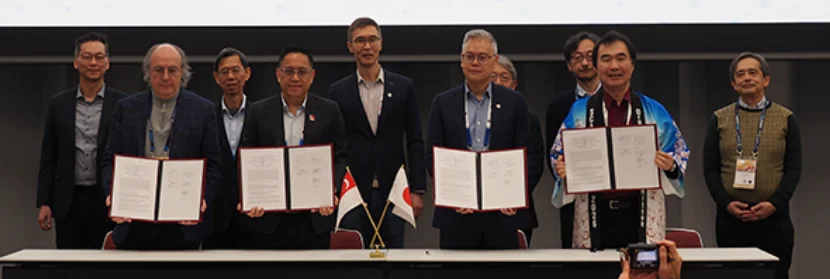
Cambridge Quantum Computing (CQC) recently announced the company’s latest version of tket — pronounced “ticket” — will have all license restrictions removed for use of tket’s Python module, also known as pytket.
Ilyas Khan, CQC’s CEO, said that allowing free access to CQC’s latest version of its high-performance quantum software development kit — or, SDK — is one of the pioneering quantum computing firm’s most important decisions.
“This is an important statement of intent,” Khan said in an interview with TQD. “We’ve thought about taking this step for a very long time, and it is coincidental that the timing is in the same week as the significant updates from Microsoft and from IBM about their quantum computing roadmap and commercialization. I am genuinely excited about how we can really provide the highest quality performance to the global community of quantum computing developers and in this way really accelerate the development of commercial and real-world applications.”
CQC’s team of quantum computing scientists developed — and continuously update — tket to allow researchers, algorithm designers and software developers to build and execute quantum circuits that produce the best results on the most advanced quantum devices available, according to a company statement. tket translates machine-independent algorithms into executable circuits, optimizing the physical qubit layout while reducing the number of required quantum gates. According to the company 2021 will see an active pipeline of further upgrades and performance enhancements as well as a possible cloud delivered service.

Many quantum hardware providers and major companies worldwide, as well as academic institutions already rely on tket.
“I am genuinely excited about how we can really provide the highest quality performance to the global community of quantum computing developers and in this way really accelerate the development of commercial and real-world applications.”
Accessible, Flexible and Free
Khan said that opening access is so important because tket can democratize and expand the flexibility of quantum computer users.
Coming in the wake of news that IBM, Amazon, Google, and IBM, among others, are committed to plans of making quantum computers widely available, tket offers versatile access to all major hardware platforms. A single shift in code can shift from one quantum computing system to another.
As the competitive landscape in quantum continues to evolve, producing performance improvements at historic speeds, this puts the user in charge of taking advantage of the latest enhancements.
“We’re giving the world an accomplished tool, which otherwise be inordinately expensive for many developers, and which maintains independence for developers and corporate users,” said Khan. “ Over the course of last year we have been adding users on such an accelerated basis that taking this step now became naturally obvious to us. All users of tket can get the best out of every available quantum processor, without compromising performance. And it’s a full stack — with class leading optimization and routing at its heart. In this respect it is a professional grade platform with no compromises on quality”
Using Python
The type of user that can access tket stretches across the QC landscape as well, from programming enthusiasts to commercial users to those investigating quantum computing in a research or academic environment.
Python is an open-source, general-purpose coding language that is common in quantum computing programming and software development. With this latest release, the company said that any Python user with access to a quantum computer can deploy the tket SDK in any context to benefit from its capabilities.
Version 0.7 of tket also now enables quantum circuit execution on Microsoft Azure Quantum (public preview version), as well as extends classical control of quantum operations on ion trap systems from Honeywell Quantum Solutions.
“By providing free access to our premier tket SDK to the legions of Python users across the world, we hope to accelerate the development of quantum computing research and applications across multiple industry sectors,” said Mehdi Bozzo-Rey, Head of Business Development, Cambridge Quantum Computing. “By increasing the number of tket-compatible cloud-based quantum computing platforms as well, we’ve made it easier for virtually any programmer to explore developing quantum algorithms and software.”
Other Features
Other new features in the v0.7 release of tket include:
- Improved circuit optimization and noise mitigation performance, with new methods to make constructing quantum circuits easier;
- Substitution of named operations with other operations, boxes or circuits; and
- Support for mid-circuit measurement on IBM Quantum premium devices.
The CQC team expects more progress and plans to keep the community updated on further upgrades and new features.
“We have an ambitious program of accelerated development that will be unveiled through the year,” said Khan. “We will also continue to publicly make available all performance results which is part of our ongoing commitment to ensure that there is transparency in all the ways that matter.”
The changelog for this version is available here.
To learn more about using tket with Azure Quantum, read the company’s blog post.
For more market insights, check out our latest quantum computing news here.














